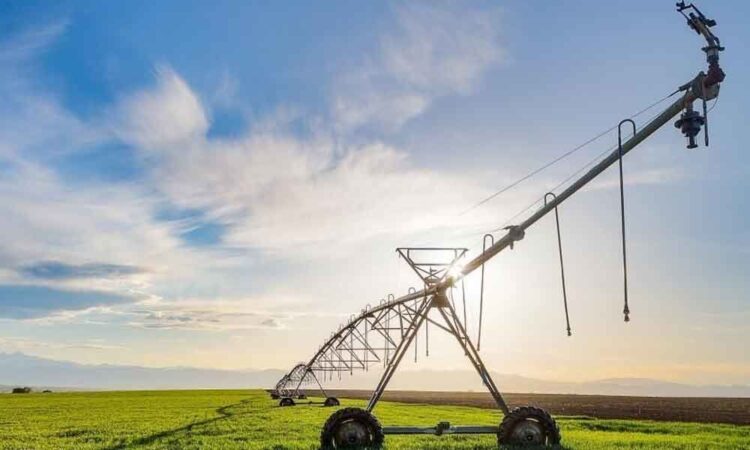
Sustainable and Smart Farming practices have been gaining a lot of attention in recent years, with the use of IoT solutions playing a crucial role in promoting these practices. Smart Farming is an advanced farming technique that utilizes modern technology to improve the efficiency and productivity of agricultural processes. On the other hand, Sustainable Farming focuses on the long-term health of the ecosystem while producing food. In this blog, we will delve deeper into the benefits of Sustainable and Smart Farming, the implementation of these practices, and their associated challenges.
Benefits of Sustainable and Smart Farming
Smart and Sustainable Farming practices offer numerous benefits to farmers and the environment. One of the most significant advantages of Smart Farming is the increased efficiency and productivity it offers. With the use of IoT solutions, farmers can monitor and control various agricultural processes remotely.
Precision Agriculture is a technique used in Smart Farming, which involves using sensors and GPS mapping to monitor the crop’s growth and apply the necessary inputs. Predictive analysis is another technique that uses data analytics to predict the crop yield, which helps farmers make informed decisions about crop management.
Sustainable Farming practices aim to reduce the environmental impact of agricultural processes. This includes conserving natural resources such as soil and water, reducing carbon footprint, and promoting biodiversity. The use of organic methods in Sustainable Farming reduces the amount of synthetic fertilizers and pesticides used in conventional farming, thereby reducing the number of harmful chemicals released into the environment.
Implementation of Sustainable and Smart Farming
Implementing Smart and Sustainable Farming practices require the use of advanced technology. Smart Farming technologies include Farm Management Systems, Remote Monitoring and Control, Drones, and Advanced Analytics and Data Management.
Farm Management Systems (FMS) are software programs that allow farmers to manage and analyze data from various agricultural processes such as crop growth, irrigation, and soil management. FMS helps farmers make informed decisions about crop management, which leads to increased productivity and reduced costs.
Remote Monitoring and Control involves using IoT devices such as sensors, drones, and cameras to monitor agricultural processes remotely. This allows farmers to monitor the crop’s growth, identify potential problems, and make necessary real-time adjustments.
Drones are used in Smart Farming to collect data about the crop’s growth, soil condition, and plant health. This information helps farmers make informed decisions about crop management, such as applying the necessary inputs and identifying potential pest infestations.
Challenges and Solutions
Implementing Smart and Sustainable Farming practices can be challenging due to various factors such as initial investment, limited access to technology, lack of technical expertise, and integration with existing systems.
Initial Investment is one of the major challenges in implementing Smart and Sustainable Farming practices. The cost of implementing advanced technology can be high, making it difficult for farmers to invest in these practices. However, there are various government schemes and grants available that can help farmers offset these costs.
Lack of Technical Expertise is another challenge farmers face in implementing Smart and Sustainable Farming practices. Farmers may not have the necessary technical expertise to implement and use advanced technology effectively. To overcome this challenge, various training programs are available that help farmers learn how to use advanced technology effectively. Additionally, many companies offering these technologies provide training and support to their customers to help them make the most out of them.
Conclusion
Smart and Sustainable Farming practices offer numerous benefits to farmers and the environment. The use of IoT solutions has played a crucial role in promoting these practices, and there are various technologies available that can help farmers implement these practices effectively. Although there are challenges associated with implementing Smart and Sustainable Farming practices, with the government’s support and increasing availability of affordable IoT devices, farmers can now access these technologies more easily than ever before.
FAQs
Q: Is Sustainable Farming more expensive than Conventional Farming?
Implementing Sustainable Farming practices can be more expensive than Conventional Farming in the short term due to the initial investment required in advanced technology. However, in the long term, Sustainable Farming practices can be more cost-effective due to increased efficiency and reduced environmental impact.
Q: How does Sustainable Farming promote biodiversity?
Sustainable Farming practices promote biodiversity by utilizing organic methods that do not harm the natural ecosystem. These practices focus on promoting the health of the soil, reducing the use of harmful chemicals, and protecting the natural habitat of beneficial insects and animals. This leads to the preservation of biodiversity, which is essential for the long-term health of the ecosystem.
Q: Can Smart and Sustainable Farming practices be implemented in all types of farms?
Yes, Smart and Sustainable Farming practices can be implemented in all types of farms, regardless of their size or location. The use of advanced technology can help farmers improve their efficiency and productivity, regardless of the type of farm.
Q: What are the benefits of Sustainable Farming for the farmer?
Sustainable Farming offers several benefits for the farmer, including reduced costs, increased productivity, and improved crop quality. Farmers can reduce their dependence on synthetic fertilizers and pesticides by utilizing organic methods, leading to reduced costs. Sustainable Farming practices also improve soil health, leading to increased productivity and better-tasting produce.
Q: How can Smart and Sustainable Farming practices help in food security?
Smart and Sustainable Farming practices can help in food security by increasing the efficiency and productivity of agricultural processes, leading to increased food production. Additionally, Sustainable Farming practices promote the long-term health of the ecosystem, which is essential for the sustainability of food production in the long run.
Q: How can consumers support Sustainable and Smart Farming practices?
Consumers can support Sustainable and Smart Farming practices by buying organic produce, supporting local farmers, and promoting awareness about these practices. By supporting Sustainable and Smart Farming practices, consumers can help promote the ecosystem’s long-term health and ensure food production’s sustainability.
